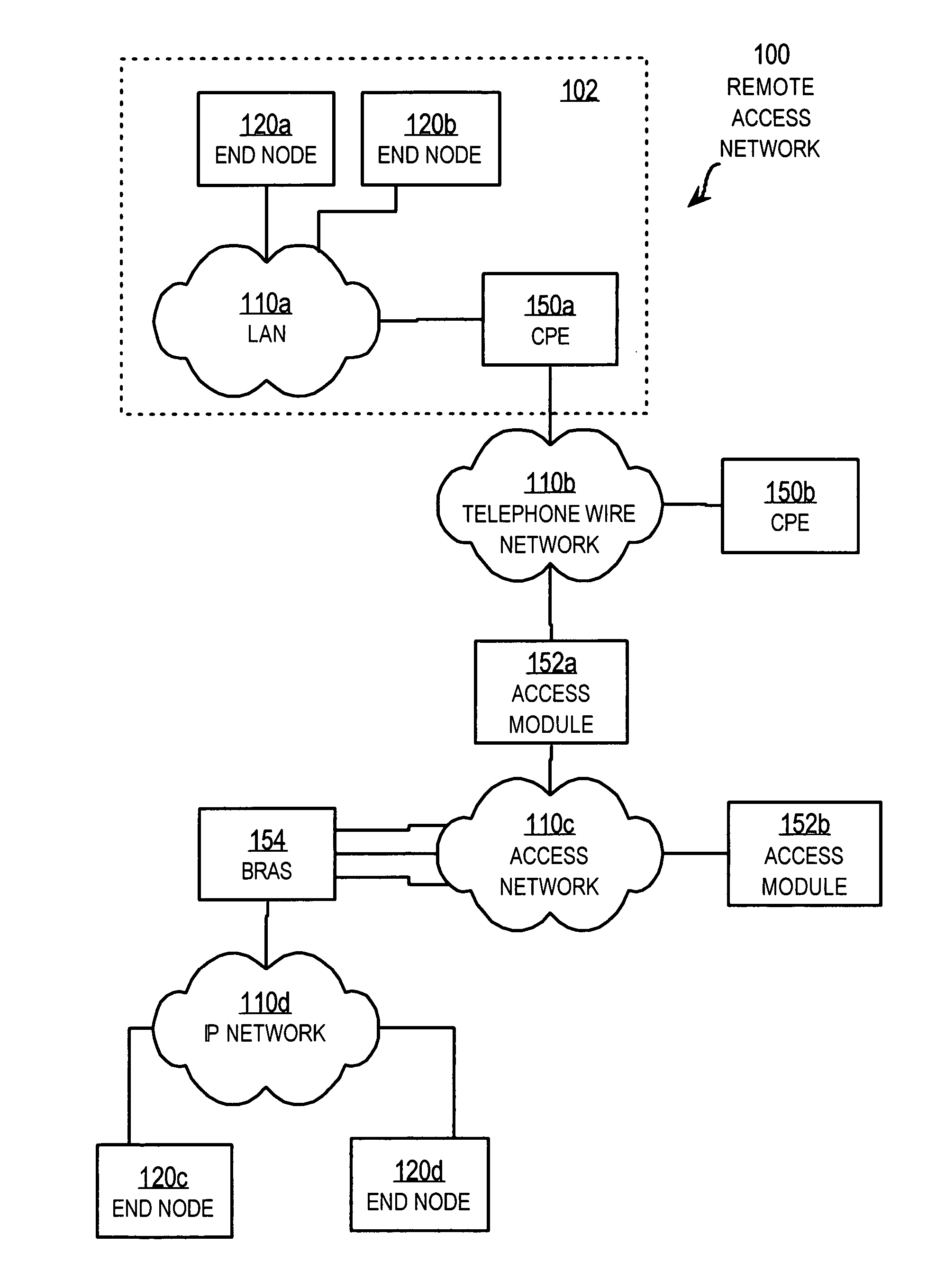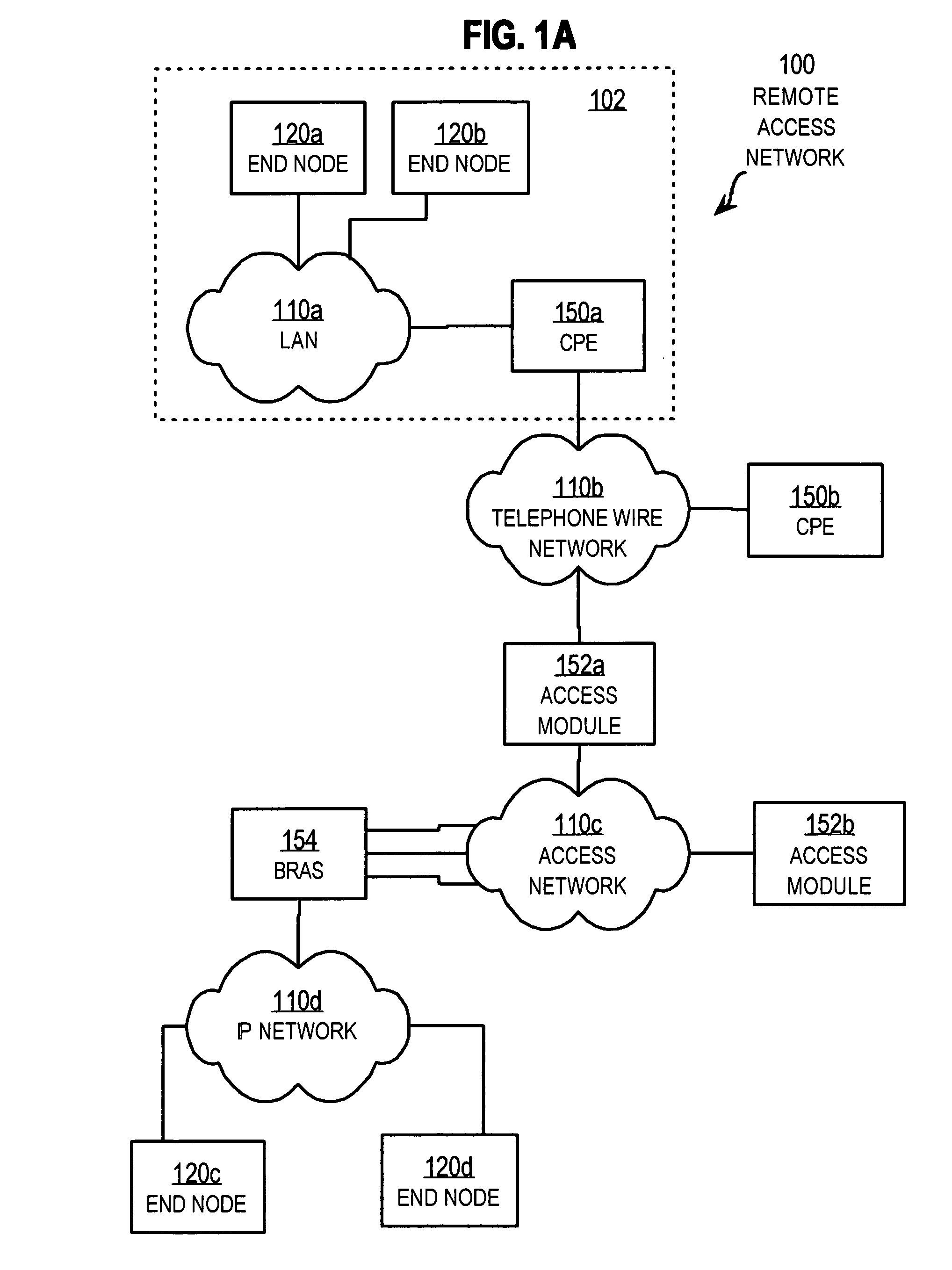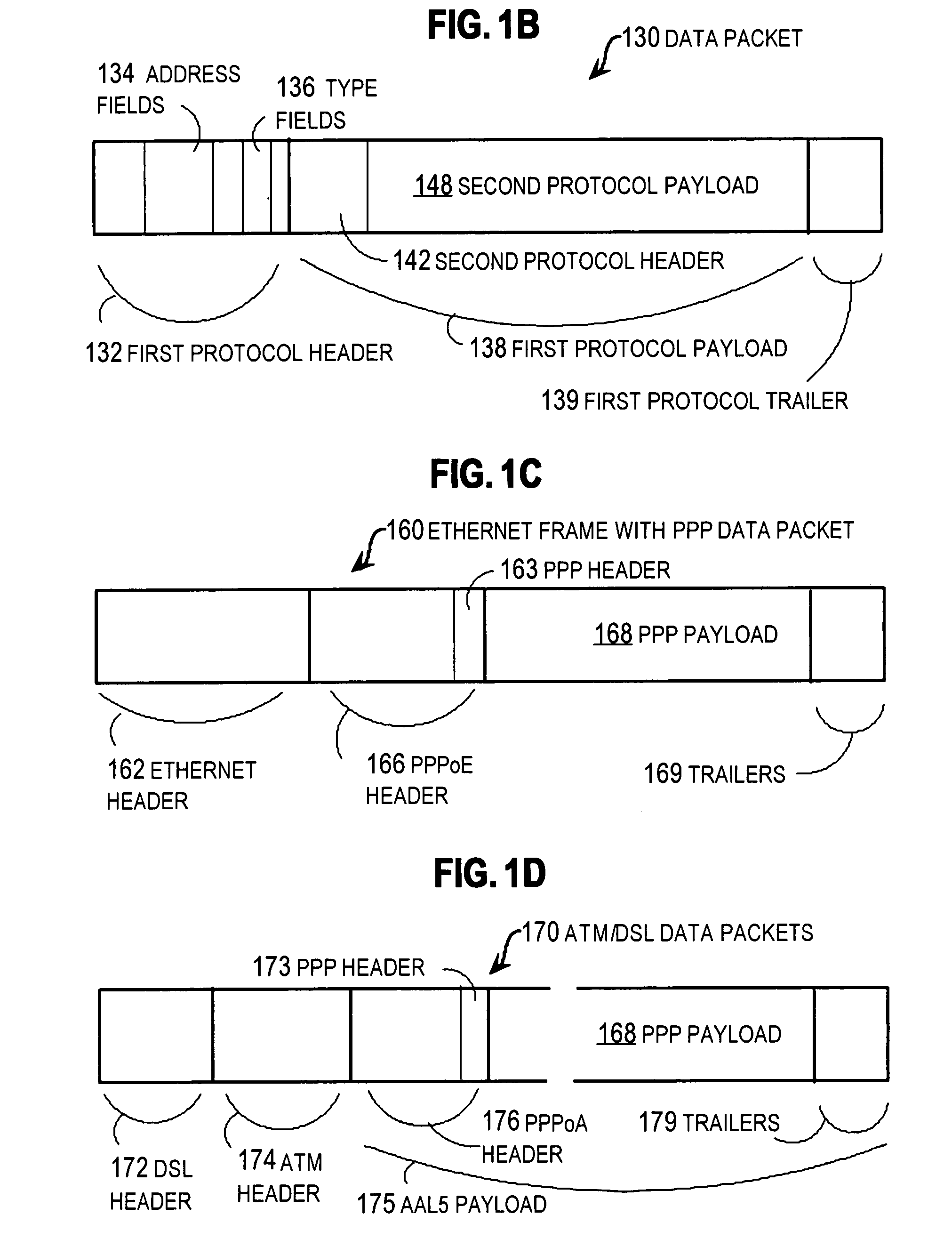Techniques for migrating a point to point protocol to a protocol for an access network
a point-to-point protocol and access network technology, applied in the field of point-to-point protocol migration to access network protocols, can solve the problems of ppp-based user authentication, billing mechanisms, and insufficient multi-protocol encapsulation capability of ppp,
- Summary
- Abstract
- Description
- Claims
- Application Information
AI Technical Summary
Problems solved by technology
Method used
Image
Examples
Embodiment Construction
[0042] A method and apparatus and system are described for migrating PPP functionality to an arbitrary protocol, such as to Ethernet or ATM. In the following description, for the purposes of explanation, numerous specific details are set forth in order to provide a thorough understanding of the present invention. It will be apparent, however, to one skilled in the art that the present invention may be practiced without these specific details. In other instances, well-known structures and devices are shown in block diagram form in order to avoid unnecessarily obscuring the present invention.
1.0 Functional Overview
[0043] In various embodiments described herein, techniques are provided that allow PPP control plane functionality while utilizing a different protocol for the data plane. For example, the PPP data plane data is sent over a first type of Ethernet packet, such as the widely popular IP over Ethernet packet, and the PPP control plane data is sent over a new type of Ethernet ...
PUM
 Login to View More
Login to View More Abstract
Description
Claims
Application Information
 Login to View More
Login to View More - R&D
- Intellectual Property
- Life Sciences
- Materials
- Tech Scout
- Unparalleled Data Quality
- Higher Quality Content
- 60% Fewer Hallucinations
Browse by: Latest US Patents, China's latest patents, Technical Efficacy Thesaurus, Application Domain, Technology Topic, Popular Technical Reports.
© 2025 PatSnap. All rights reserved.Legal|Privacy policy|Modern Slavery Act Transparency Statement|Sitemap|About US| Contact US: help@patsnap.com



